The emission of electrons from a metal surface exposed rto light radaition of appropriate wavelength is called photoelectroic effect .The emmited electron are called photo=-weklectron work function of threshold energy may be defined as the minimum amount of energy required to ejercted electron from a most surface .According to Einstein
Maximum kinetic energy of ejected electron = Aborbed energy - Work function
12mv2max=h(v)−h(vn)=hv[1λ−01λn]
Where vn and λ0 are thereshold frequency and threshold wavelength respectively
Sopping potential : it is the miximum potential at which the photoelectric current becomes zero if V0 is the stopping potential eV0=h(v−v0)
The folloeing figure indicates the energy livels of a certain atom .When the system moves from 2E level to E lvel a photon of wavelength λ is emitted .The wavelength of the photon produced during the transition from level 4E/3 to level E is
![The emission of electrons from a metal surface exposed rto light radaition of appropriate wavelength is called photoelectroic effect .The emmited electron are called photo=-weklectron work function of threshold energy may be defined as the minimum amount of energy required to ejercted electron from a most surface .According to Einstein Maximum kinetic energy of ejected electron = Aborbed energy - Work function (1)/(2) mv(max)^(2) = h(v) - h(v(n)) = hv [(1)/(lambda) -0 (1)/(lambda(n))] Where v(n) and lambda(0) are thereshold frequency and threshold wavelength respectively Sopping potential : it is the miximum potential at which the photoelectric current becomes zero if V(0) is the stopping potential eV(0) = h(v- v(0)) The folloeing figure indicates the energy livels of a certain atom .When the system moves from 2E level to E lvel a photon of wavelength lambda is emitted .The wavelength of the photon produced during the transition from level 4E//3 to level E is](https://d10lpgp6xz60nq.cloudfront.net/physics_images/V_PHY_CHM_P1_C04_E01_097_Q01.png)
λ3
3λ4
4λ3
3λ
The correct Answer is:D
Step by step video, text & image solution for The emission of electrons from a metal surface exposed rto light radaition of appropriate wavelength is called photoelectroic effect .The emmited electron are called photo=-weklectron work function of threshold energy may be defined as the minimum amount of energy required to ejercted electron from a most surface .According to Einstein Maximum kinetic energy of ejected electron = Aborbed energy - Work function (1)/(2) mv_(max)^(2) = h(v) - h(v_(n)) = hv [(1)/(lambda) -0 (1)/(lambda_(n))] Where v_(n) and lambda_(0) are thereshold frequency and threshold wavelength respectively Sopping potential : it is the miximum potential at which the photoelectric current becomes zero if V_(0) is the stopping potential eV_(0) = h(v- v_(0))The folloeing figure indicates the energy livels of a certain atom .When the system moves from 2E level to E lvel a photon of wavelength lambda is emitted .The wavelength of the photon produced during the transition from level 4E//3 to level E is by Chemistry experts to help you in doubts & scoring excellent marks in Class 11 exams.
Updated on:21/07/2023Topper's Solved these Questions
- ATOMIC STRUCTUREBOOK - CENGAGE CHEMISTRYCHAPTER - ATOMIC STRUCTUREEXERCISE - Exercises Multiple Correct
45 Videos
- ATOMIC STRUCTUREBOOK - CENGAGE CHEMISTRYCHAPTER - ATOMIC STRUCTUREEXERCISE - Exercises Single Correct
127 Videos
- ATOMIC STRUCTUREBOOK - CENGAGE CHEMISTRYCHAPTER - ATOMIC STRUCTUREEXERCISE - Exercises (Subjective)
52 Videos
- APPENDIX - INORGANIC VOLUME 1BOOK - CENGAGE CHEMISTRYCHAPTER - APPENDIX - INORGANIC VOLUME 1EXERCISE - chapter-7 Single correct answer
1 Videos
- CHEMICAL BONDING AND MOLECULAR STRUCTUREBOOK - CENGAGE CHEMISTRYCHAPTER - CHEMICAL BONDING AND MOLECULAR STRUCTUREEXERCISE - Archives Subjective
15 Videos
Similar Questions
Knowledge Check
The emission of electrons from a metal surface exposed rto light radaition of appropriate wavelength is called photoelectroic effect .The emmited electron are called photo=-weklectron work function of threshold energy may be defined as the minimum amount of energy required to ejercted electron from a most surface .According to Einstein
Maximum kinetic energy of ejected electron = Aborbed energy - Work function
12mv2max=h(v)−h(vn)=hv[1λ−01λn]
Where vn and λ0 are thereshold frequency and threshold wavelength respectively
Sopping potential : it is the miximum potential at which the photoelectric current becomes zero if V0 is the stopping potential eV0=h(v−v0)
Which graph is correct ?A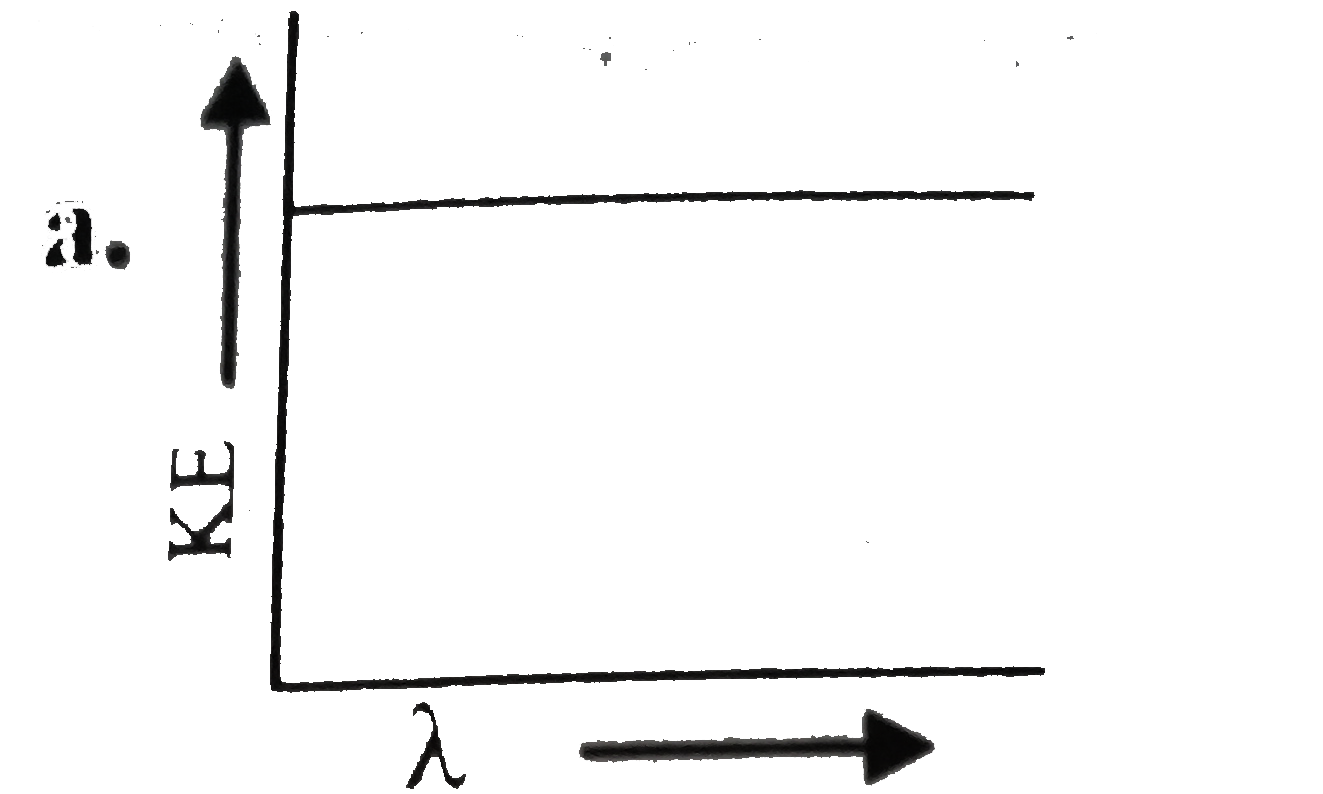 B
B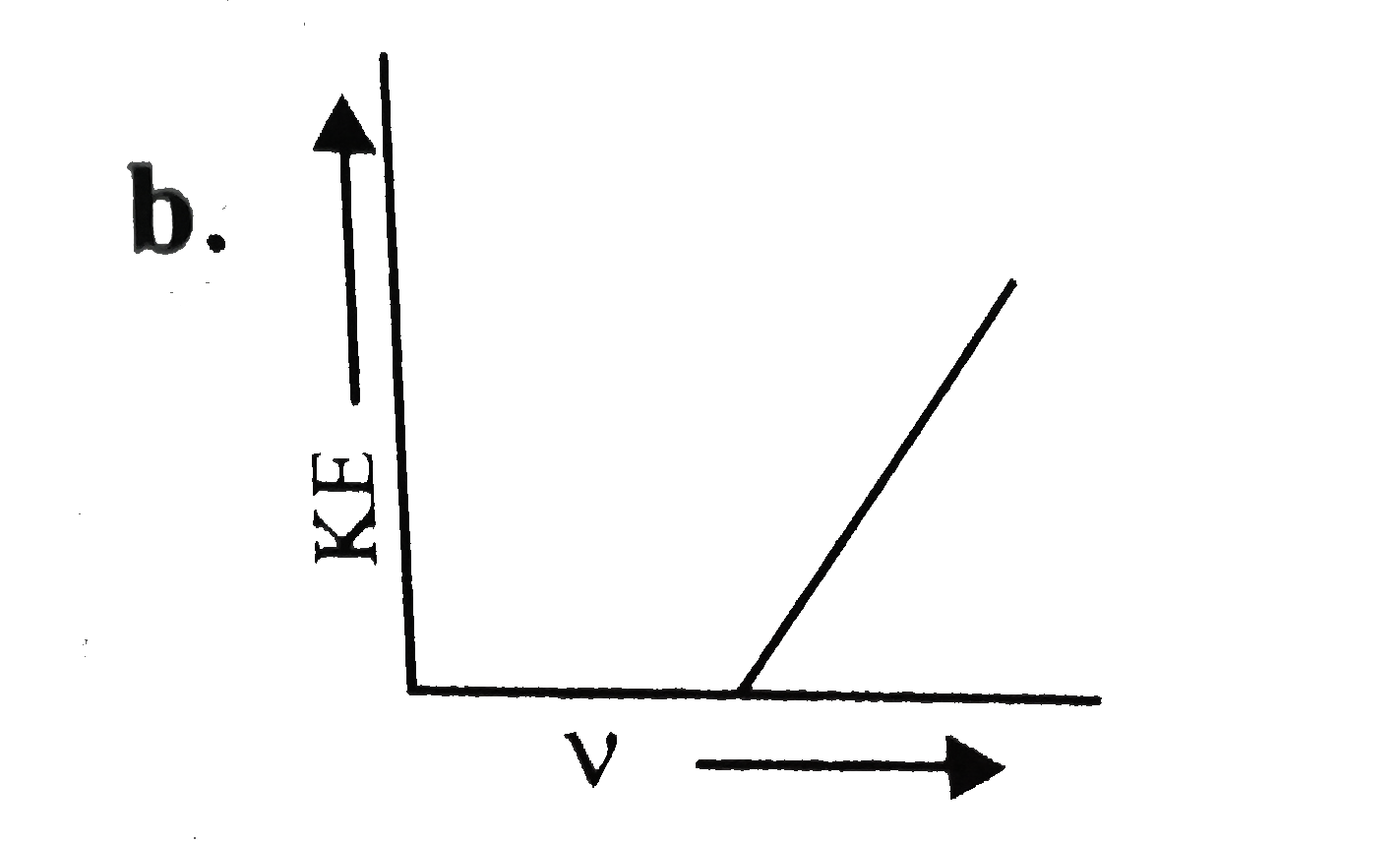 C
C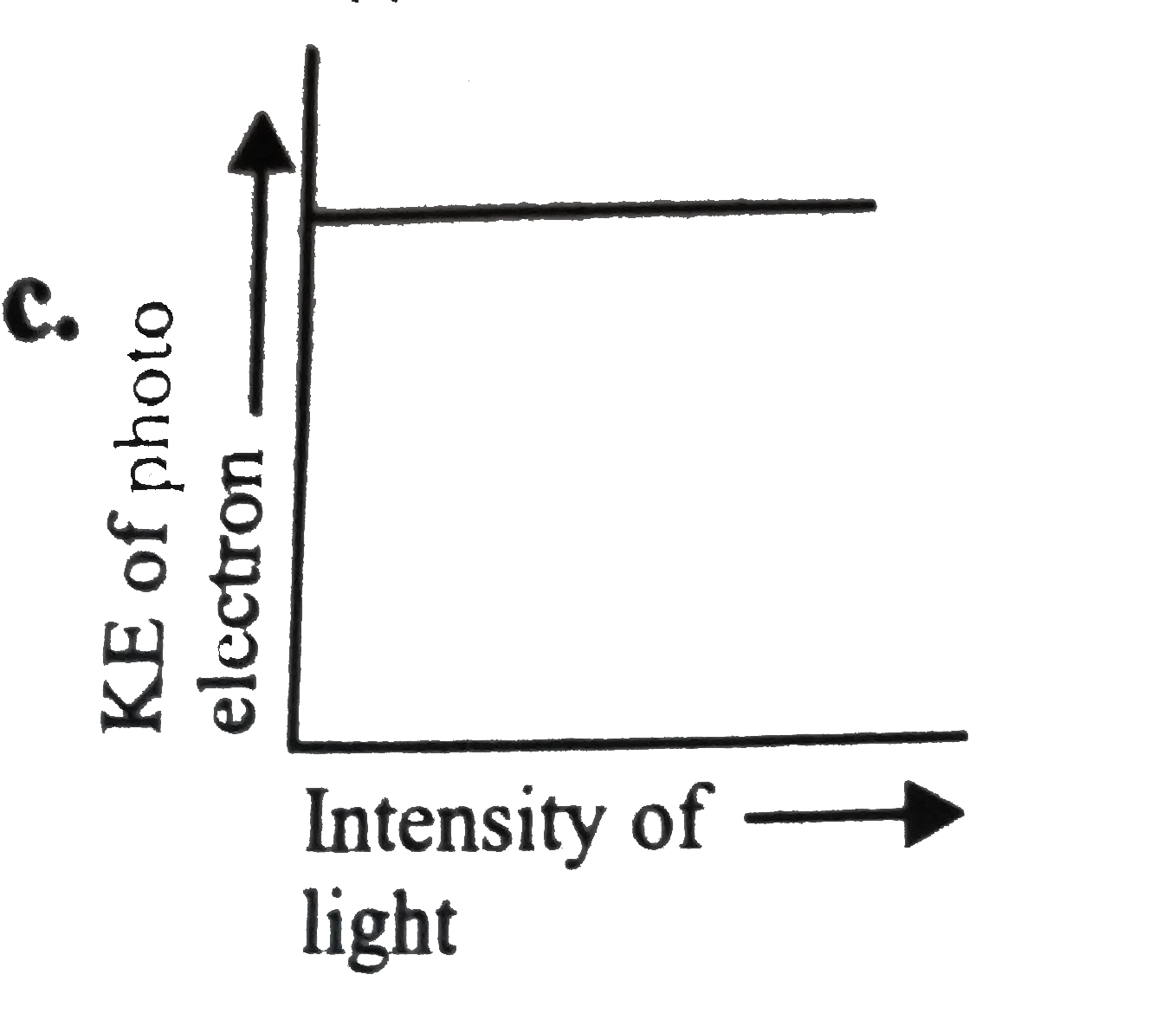 D
D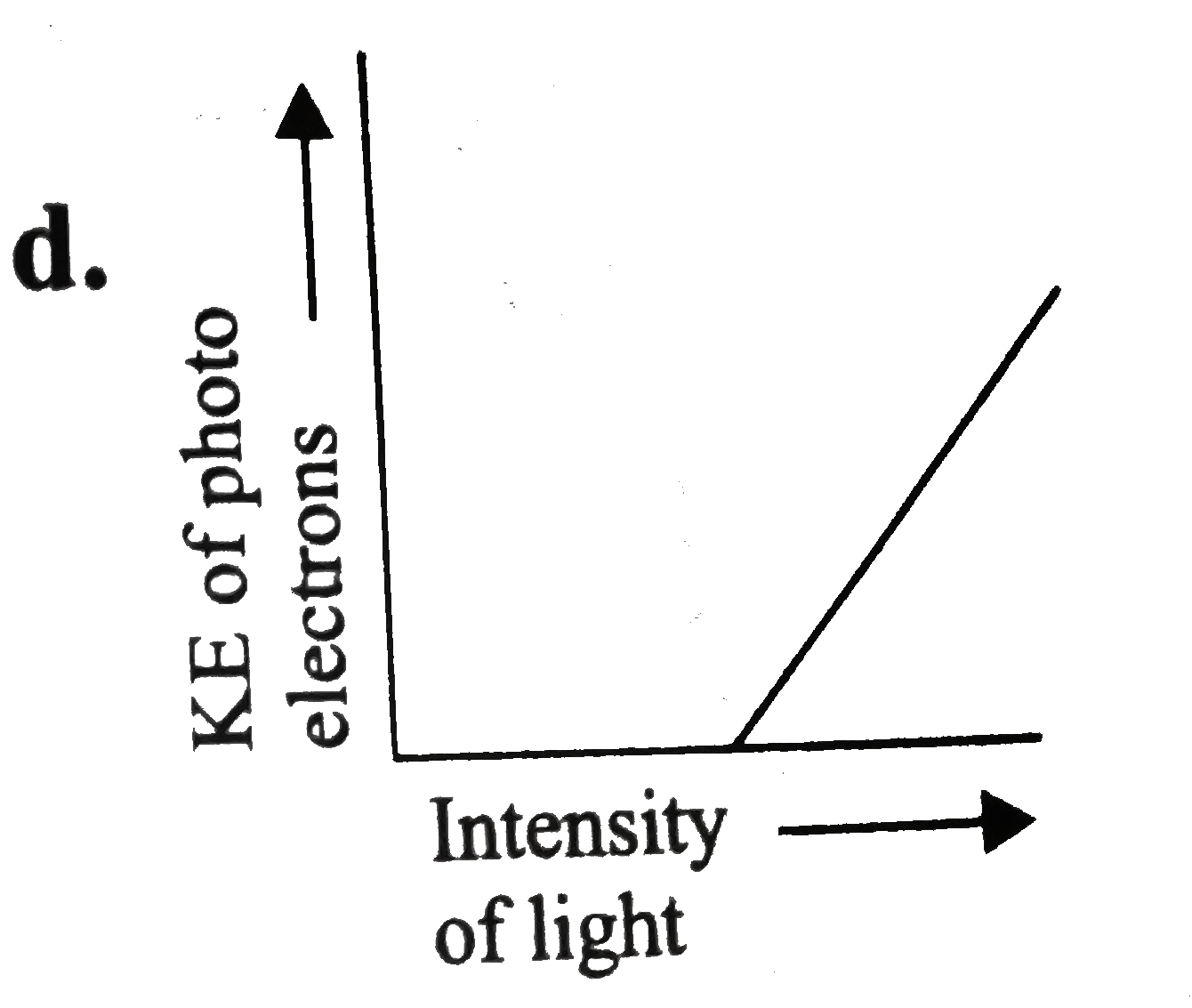
The emission of electrons from a metal surface exposed rto light radaition of appropriate wavelength is called photoelectroic effect .The emmited electron are called photo=-weklectron work function of threshold energy may be defined as the minimum amount of energy required to ejercted electron from a most surface .According to Einstein
Maximum kinetic energy of ejected electron = Aborbed energy - Work function
12mv2max=h(v)−h(vn)=hv[1λ−01λn]
Where vn and λ0 are thereshold frequency and threshold wavelength respectively
Sopping potential : it is the miximum potential at which the photoelectric current becomes zero if V0 is the stopping potential eV0=h(v−v0)
Whaich of the following is the graph between the frequency (V) of the incident radiation and the stopping potential (v) ?A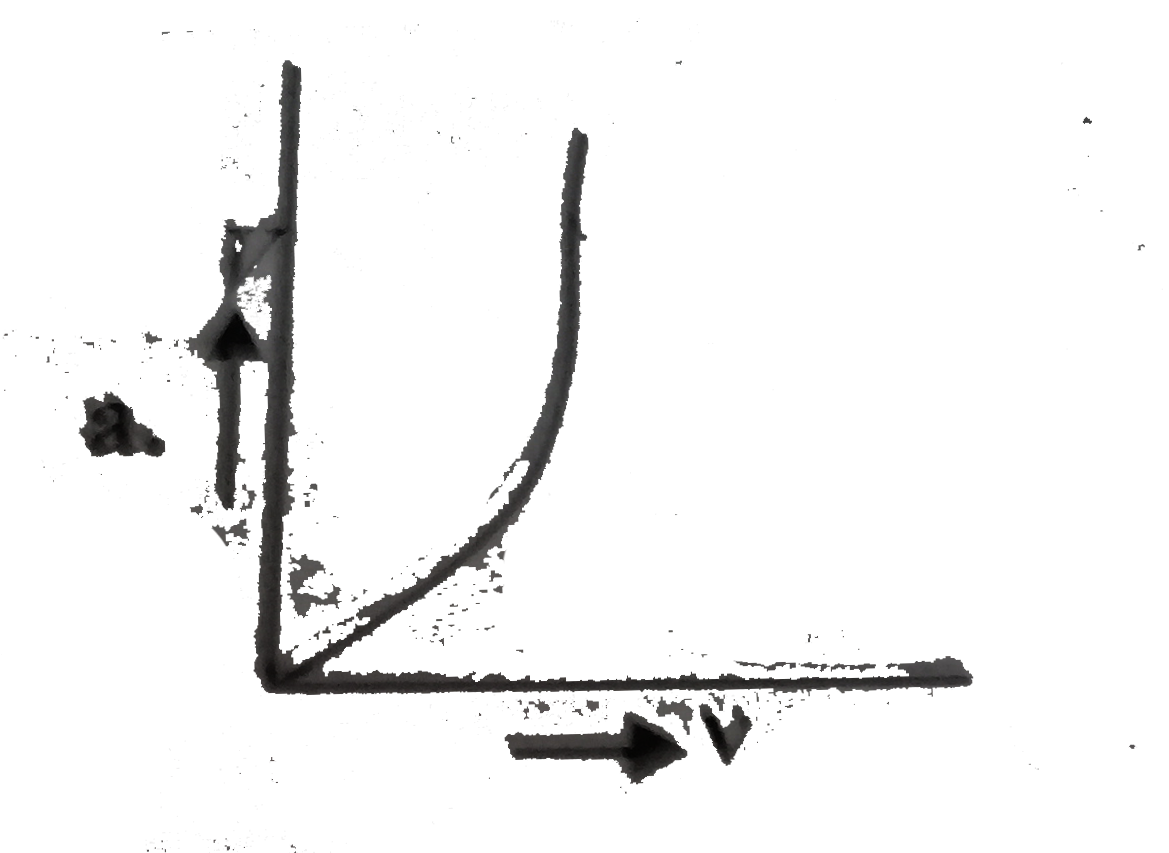 B
B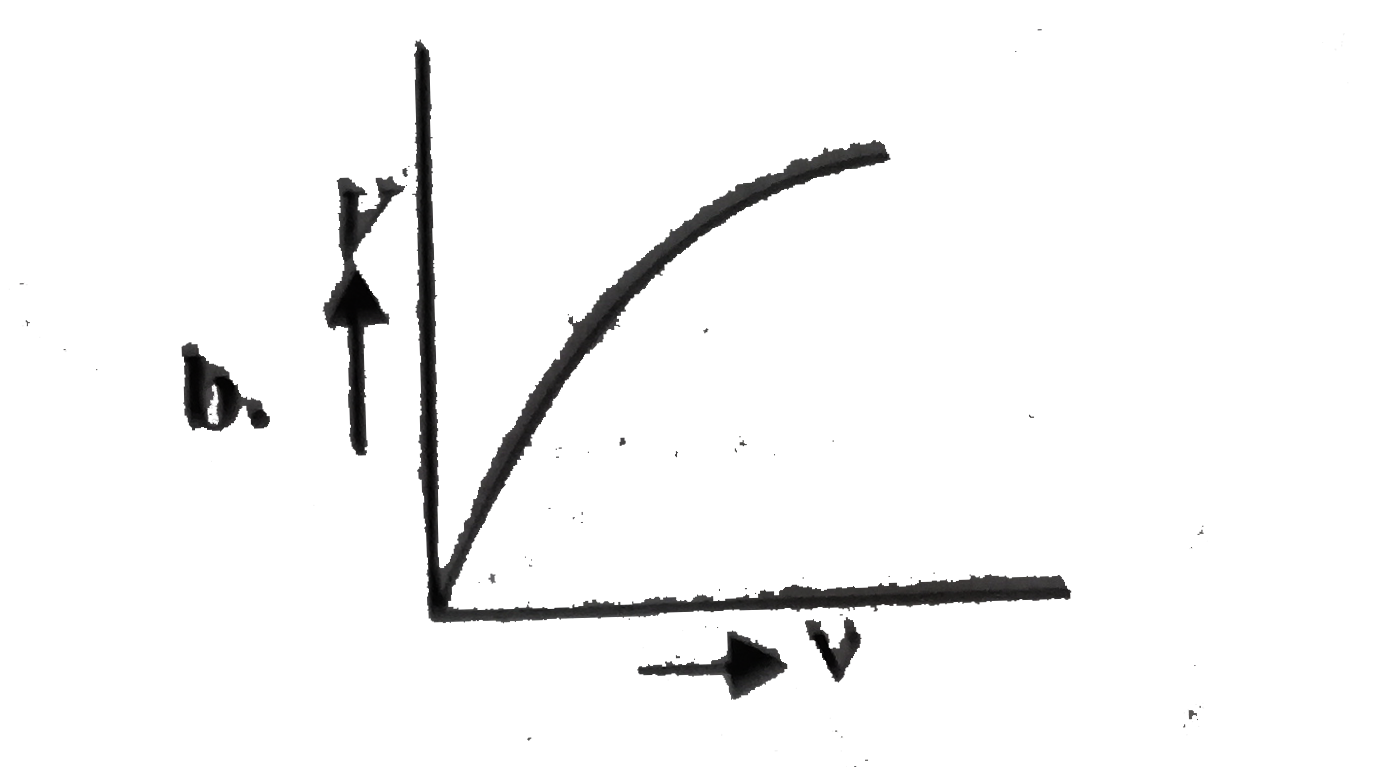 C
C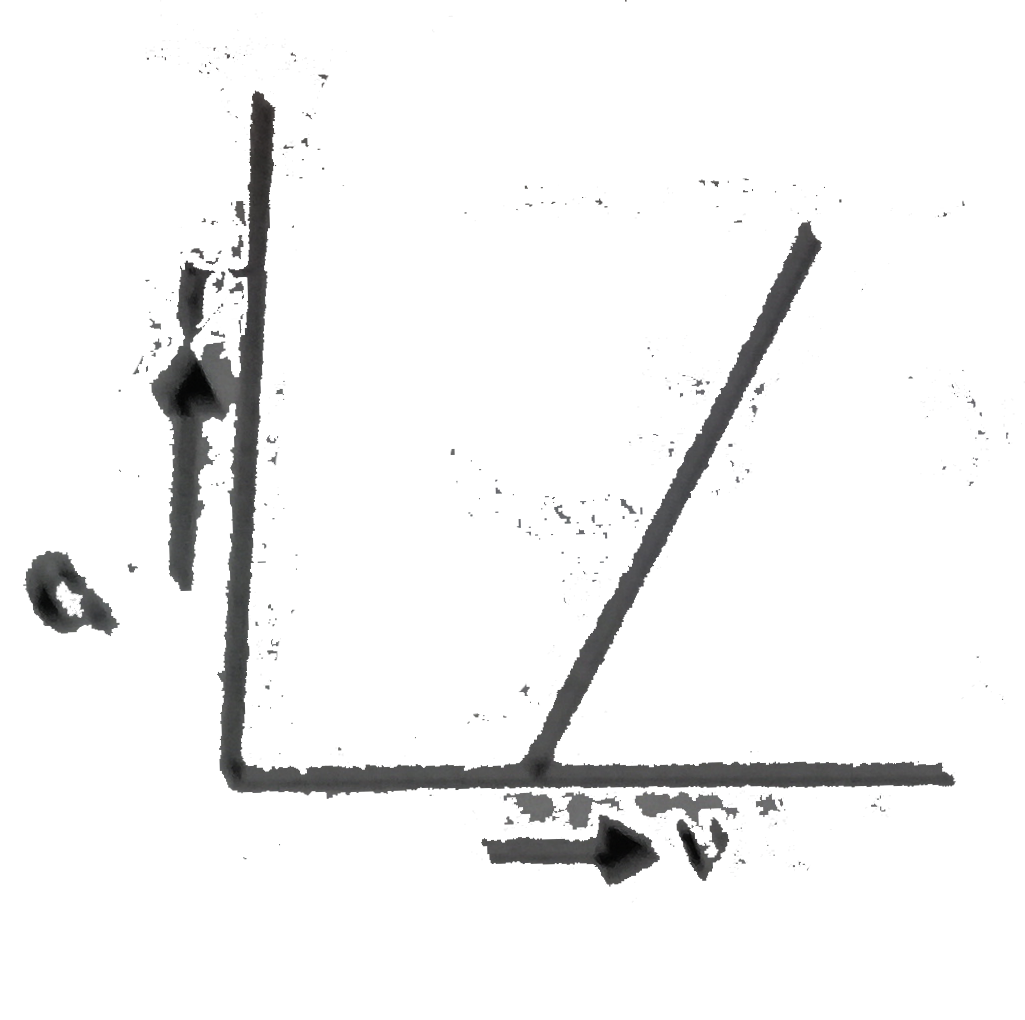 D
D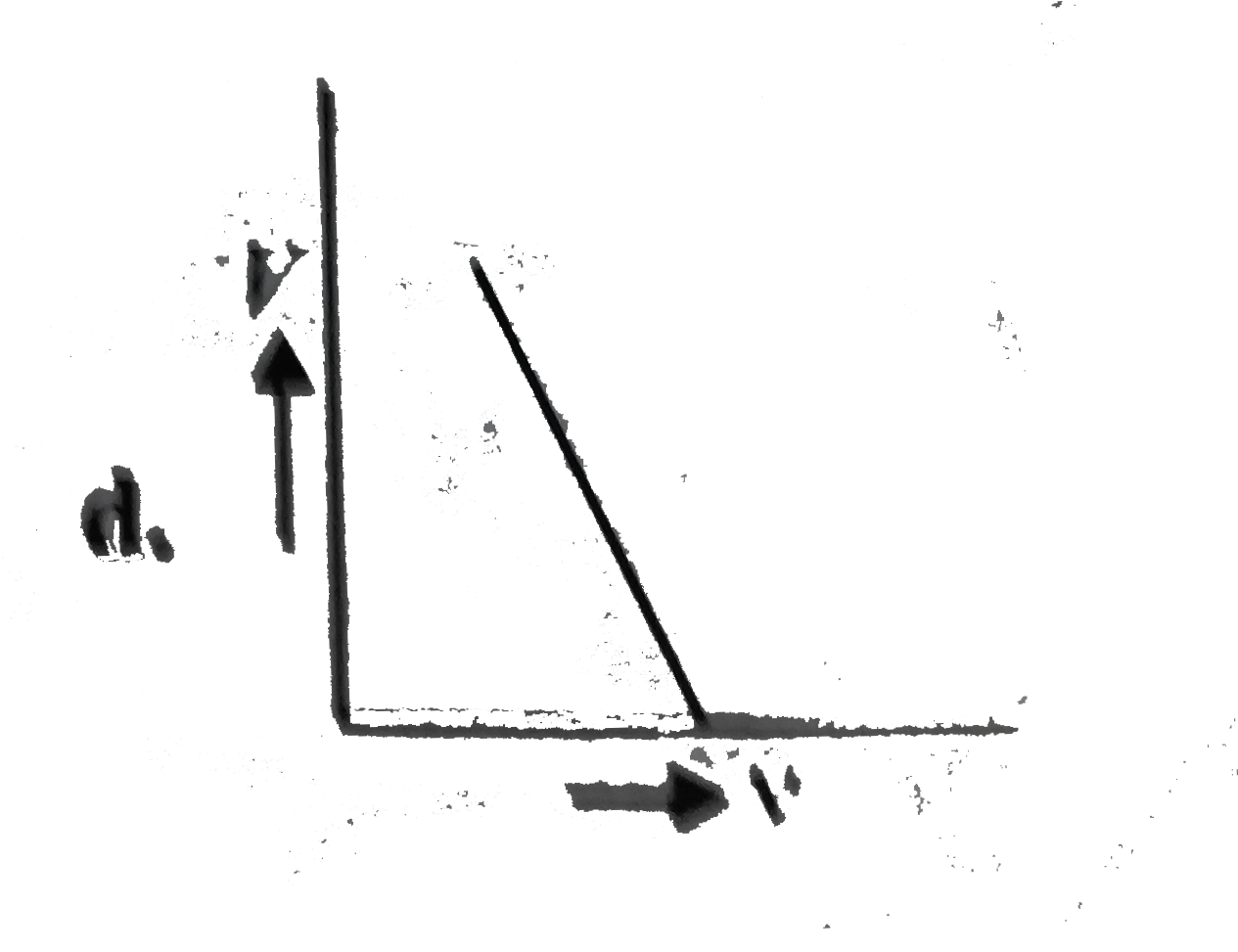
The emission of electrons from a metal surface exposed rto light radaition of appropriate wavelength is called photoelectroic effect .The emmited electron are called photo=-weklectron work function of threshold energy may be defined as the minimum amount of energy required to ejercted electron from a most surface .According to Einstein
Maximum kinetic energy of ejected electron = Aborbed energy - Work function
12mv2max=h(v)−h(vn)=hv[1λ−01λn]
Where vn and λ0 are thereshold frequency and threshold wavelength respectively
Sopping potential : it is the miximum potential at which the photoelectric current becomes zero if V0 is the stopping potential eV0=h(v−v0)
The stopping potential as a function on electron frtequency is plotted for two photoelectric surface A abd B The graph show that the work function of A is
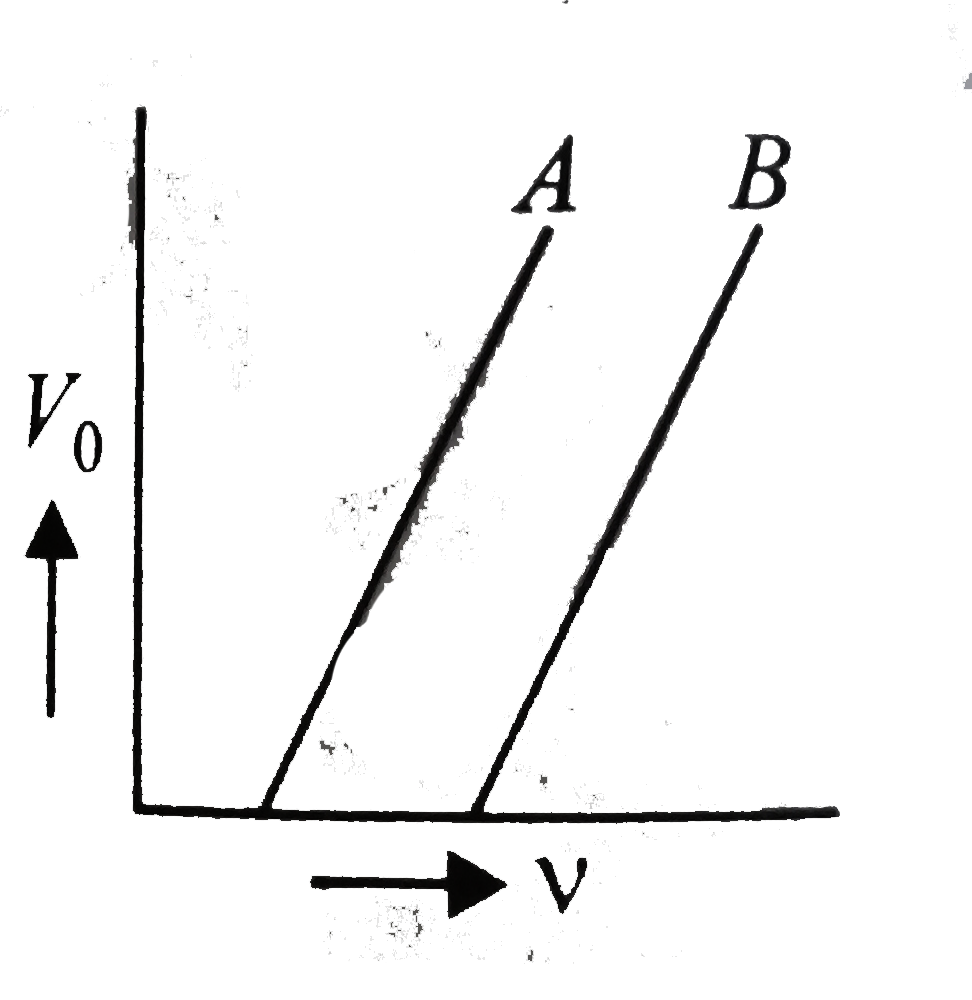 AGreater than that of BBSmaller than that of BCSame as that of BDSuch that no comparison can be done from given graph
AGreater than that of BBSmaller than that of BCSame as that of BDSuch that no comparison can be done from given graph
The emission of electrons from a metal surface exposed rto light radaition of appropriate wavelength is called photoelectroic effect .The emmited electron are called photo=-weklectron work function of threshold energy may be defined as the minimum amount of energy required to ejercted electron from a most surface .According to Einstein
Maximum kinetic energy of ejected electron = Aborbed energy - Work function
12mv2max=h(v)−h(vn)=hv[1λ−1λn]
Where vn and λ0 are thereshold frequency and threshold wavelength respectively
Sopping potential : it is the miximum potential at which the photoelectric current becomes zero if V0 is the stopping potential eV0=h(v−v0)
In the photoelectric currect effect the shape of strainght line graph between stopping potential (V0) and frequency of incident light (V) gves
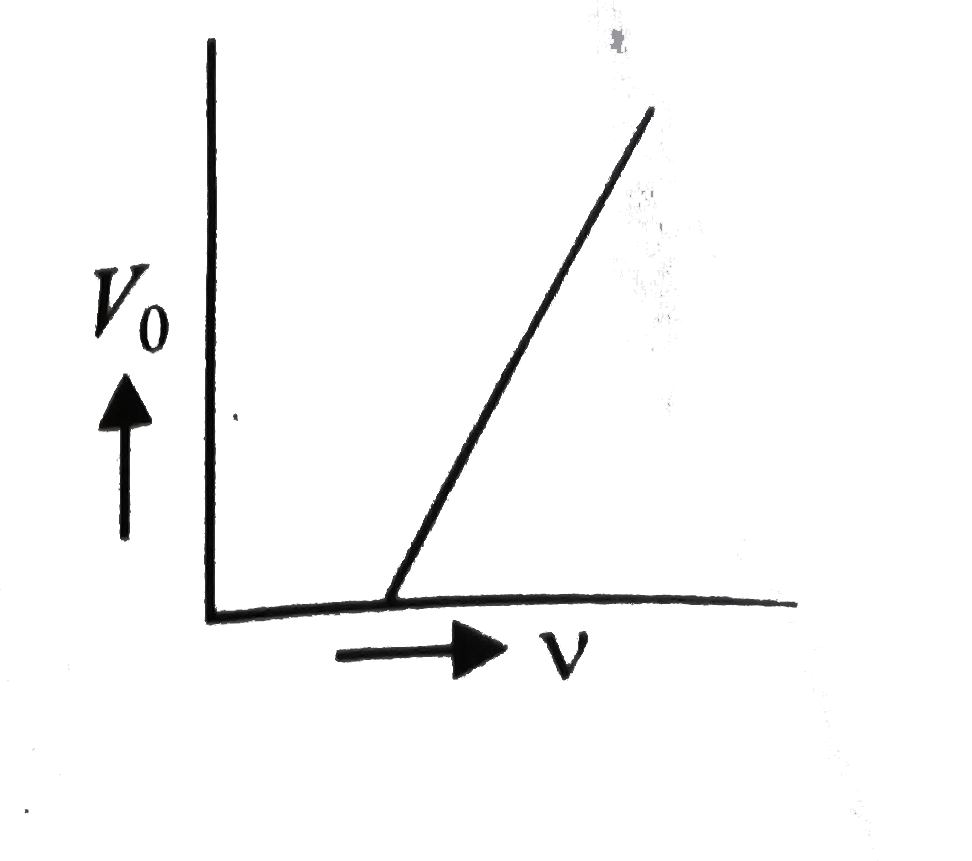
View SolutionThe minimum energy required to eject an electron from an atom is called
View SolutionThe minimum energy required to remove an electron is called
View SolutionWhen light falls on a metal surface , the maximum kinetic energy of the emitted photo - electrons depends upon
View SolutionElectron emission from a metallic surface by application of light is known as
View Solution
